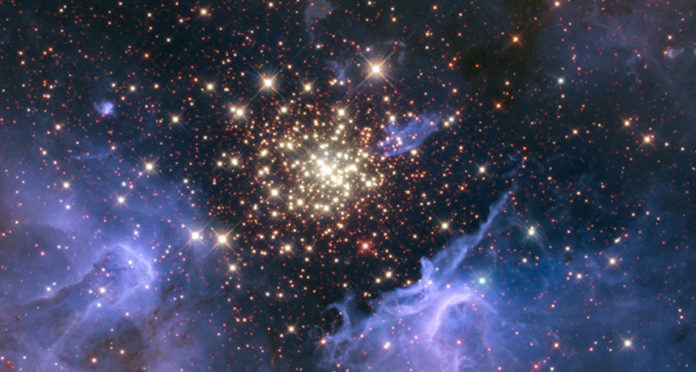I was in fourth grade in Lusaka, Zambia when Ms. Reedy started reading A Wrinkle in Time to our class as a reward for getting our daily work done early. I had never heard anything like it. Not only did it make me a lifetime Madeleine L’Engle fan, but it let me live with the notion that I could grasp something about science and space that mattered, even though I wasn’t that much of a scientist. That book made me believe the universe is made of stories.
I was in ninth grade at Nairobi International School the first time I heard Crosby, Stills, Nash, and Young sing,
we are stardust, we are golden, we are billion year old carbon,
and we got to get ourselves back to the garden.
It would be a number of years before I learned that Joni Mitchell was the one who wrote those words. It would be even longer before I began to understand there was more to what she was singing than just a flower child’s dream. She was talking quantum theology–or so it seems to me as a sixty-five year old in Guilford, Connecticut reading Race and the Cosmos by Barbara Howard and Soul: God, Self, and the New Cosmology by Angela Tilby. I feel like Ms. Reedy and Madeleine are close by.
Joni was telling the truth: we are stardust. We are created in the image of God, the One who named themselves the verb To Be, the Spirit (the foundational, sustaining energy in everything). And we’ve got to get ourselves back in touch with that wherever we are. Barbara Howard takes the music of the spheres a step further, pointing to the ways in which the myths of ancient cultures appear to already know what (Western) scientists are uncovering–that music and stories are at the heart of our hope:
One recent awareness of the hum of the earth and the vibrations of our own inner energy speak to the dynamism of a universe that is stranger than we imagine. In the realm of quantum mechanics, as particles dance in chaotic but harmonious patterns, one wonders how the elders kew that music, dance, and storytelling were intrinsic to an indivisible world of experience, relationships, and science. Science speaks of a universe that vibrates and hums with energy; religion speaks of a God who also weeps and sings. (109)
Over the last few springs and summers working in our communal church garden, I have learned about the host of conversations going on in the soil as living beings from bugs to beans, mushrooms and weeds, trees and tomatoes talk to each other, share nutrients, and create a vibrant web of relationship that can reach for miles. The string theory of quantum physics imagines that the fundamental building blocks of everything are tiny, vibrating, looped strings. Everything, whether you are talking about planets or puppies, humans or hammers or hippos. All of our lives go on in endless song. Dale Pond, who studies something called “sympathetic vibrating physics,” says,
Genesis records God as having said Light into Being but perhaps it would be more accurate to say God sang Light into being as the prelude to our cosmic dance. (109)
Howard finishes the thought by saying, “The cultures of the two-thirds world bring these concepts into harmony through ritual and myth.”
All of these things were humming in my head as I prepared for our Ash Wednesday ritual, the first in two years where we could actually share the ashes. The previous interim pastor had saved the palm fronds from last year, so this afternoon I turned them into ashes, with help from a couple of YouTube tutorials, since I had never done it before and it involved fire. As the smoke rose from the bowl of burning leaves, I thought about ancient fires. As I got out of the car at church, it was dark enough to see Orion climbing over the steeple as I walked in carrying my container of stardust. In my notebook, I had this poem from Jan Richardson:
So let us be marked
not for sorrow.
And let us be marked
not for shame.
Let us be marked
not for false humility
or for thinking
we are less
than we are
but for claiming
what God can do
within the dust,
within the dirt,
within the stuff
of which the world
is made,
and the stars that blaze
in our bones,
and the galaxies that spiral
inside the smudge
we bear.
After we had sung and prayed and I read the poem, I stood at the front and people lined up to come forward. We were all masked, but I could still dip my thumb in the dark mystery of the ashes and oil and mark their foreheads as I said,
“From stardust you came and to stardust you will return.”
I was smiling the whole time, even though no one could see.
Peace,
Milton
